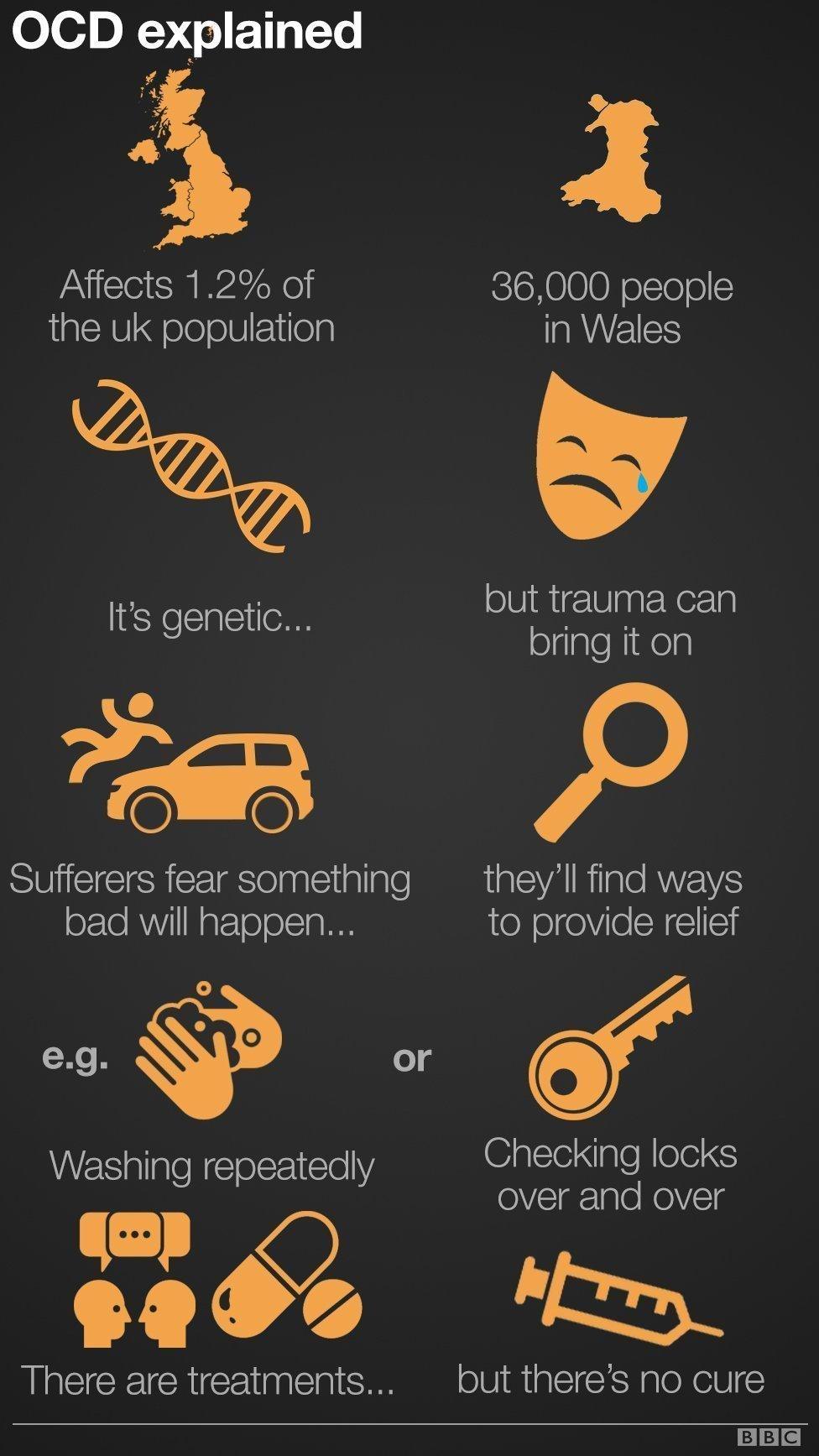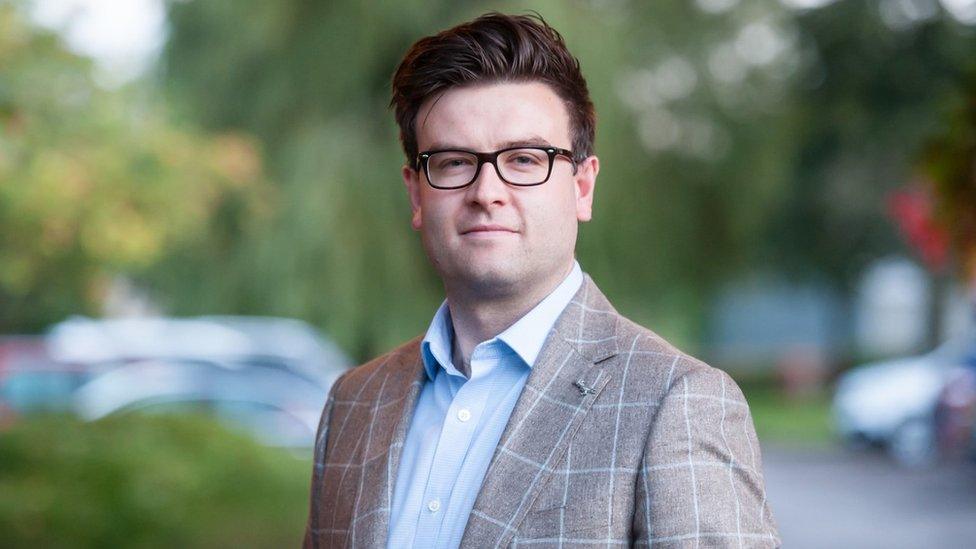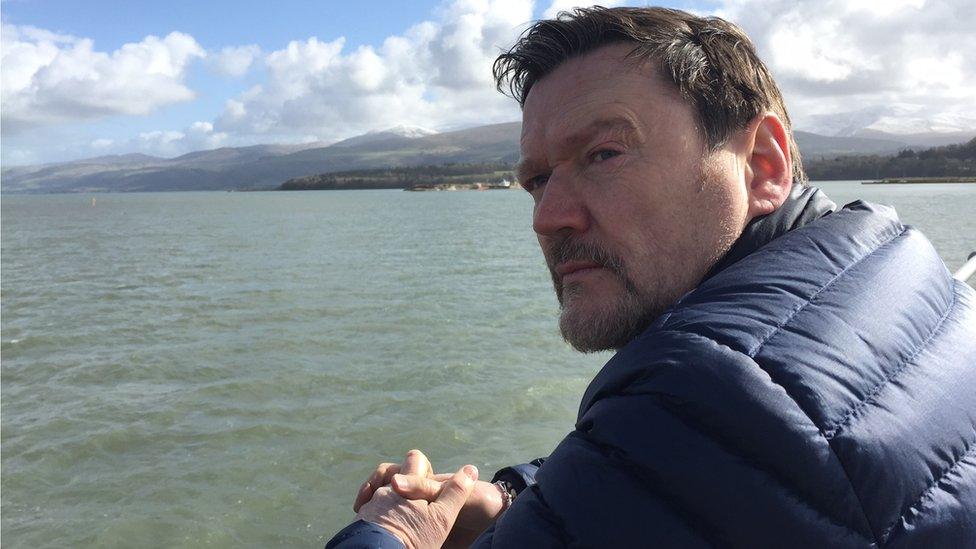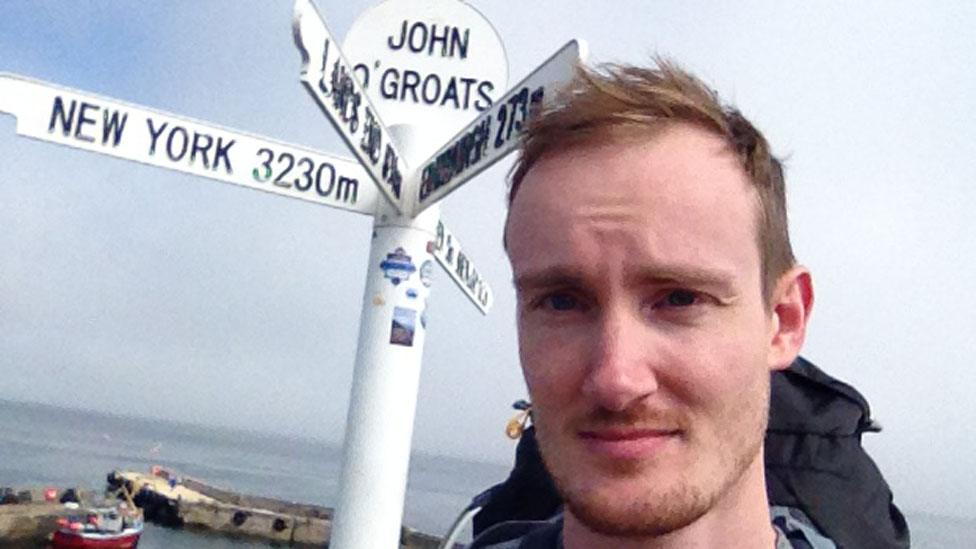OCD jokes stopping patients getting help, charity warns
- Published
- comments

The trivialisation of obsessive compulsive disorder is stopping many sufferers getting much-needed help, a charity has warned.
OCD-UK said some of the 36,000 people in Wales with the condition are dealing with it alone because of the stigma.
Mind Cymru has called for all GPs to have training to help spot symptoms.
Meanwhile, a Cardiff University psychology lecturer called the five to seven month waiting time between diagnosis and treatment a big problem.
OCD-UK's Ashley Fulwood has spoken out after the chief executive of Pontypool RFC, Ben Jeffreys, said he was on the verge of suicide after the condition took over his life.
He has opened up after a 10-year battle, during which time he kept his turmoil a secret from those closest to him.
The condition is genetic and sufferers, fearing something bad will happen, repeat behaviours to provide relief - such as brushing their teeth or washing their hands.
Mr Fulwood said it was not taken seriously enough - highlighting a recent complaint he made to The Range, which has nine stores across Wales, about its advertising slogan "Obsessive Cake Disorder".
"Despite the retailer eventually recognising the problem and taking decisive action for which we are grateful, we received a lot of comments on social media," he said.
"Some of the comments said we need to lighten up and get a sense of humour.
"What those individuals failed to (or deliberately chose to ignore) is the fact that every OCD joke or misrepresentation trivialises the severity of the condition, and such stigma can prevent people seeking help or talking about their problems."

Mr Fulwood said there could be catastrophic consequences for sufferers who become depressed, reclusive or see suicide as the only way out.
Mind Cymru's director Sara Moseley called for compulsory mental health training for GPs across Wales, saying many have not received any.
She called services "patchy", with the condition of many OCD sufferers getting worse because of long waits to see therapists.
Ms Moseley also said there needed to be more awareness of how it is linked to other conditions, such as anxiety and depression.
Cardiff University psychology lecturer, Dr Athanasios Hassoulas, has researched the condition throughout his career after he was diagnosed with OCD as a teenager.
His parents first noticed something was wrong when he became frustrated and distressed aged 14, having to check the door was locked up to 50 times before leaving the house.
'Huge barrier'
While he said he was lucky to receive treatment aged 16 and responded well, others were not so fortunate.
Dr Hassoulas said it was common for teenagers not to understand what they were going through, while available information was not always accurate, meaning they do not want to talk to their GP.
He described the issue as a "huge barrier", adding: "Unfortunately there is no cure yet.
"At Cardiff, our emphasis is on understanding the brain and the more we understand the networks in the brain that give rise to these thoughts, the more chance we have of developing the cure perhaps."
With a five to seven month gap between diagnosis and treatment, he also called for more support during this period.
The Welsh Government said it had invested £3m in the past two years in psychological therapies to help people with conditions such as OCD.
A spokesman added most people with mental health conditions responded best to treatment in the community.
Since 2013, 125,000 patients, including some with OCD, have been helped by community support services.
- Published21 September 2017

- Published3 April 2017

- Published16 June 2016

- Published3 December 2015

- Published15 July 2017
